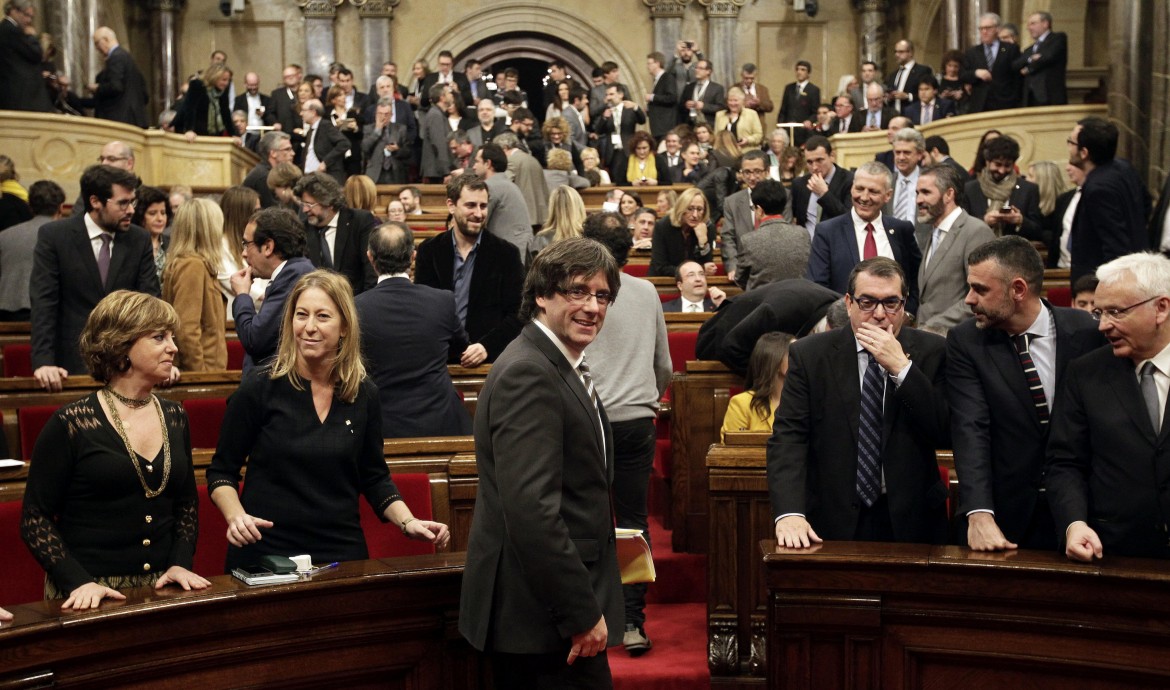Commentary
In Catalonia, the Balkan risk
Why is an independent Catalonia a bad thing while Kosovo has been recognized as a state?

Since when does a referendum process in a European country become a “problem of democracy,” even though the question is on independence?
It’s happening in Spain, where the Rajoy government, now decisive in the European Union, has become an elephant inside a glassware store. It has commandeered the treasury of the Catalan Generalitat, arrested officers, seized propaganda material and millions of ballot cards, threatened hundreds of mayors and journalists, and ordered the police to enter newspaper newsrooms.
It takes the mask off the reality of the ongoing democratic process that sees the restoration of the People’s Party, in the face of the widespread — even strong — but scattered and therefore impotent and incohesive, Spanish Left. It also faces the substance of a “leftist” independent claim, which, although not openly nationalist, is likely to imitate all the “Balkan” modes and developments of nationalism.
Thus, it seems the independence objective of the Catalan nation has silenced voices like Podemos and Barcelona’s Mayor Ada Colau, capable of reviving the “autonomy for all,” not a historical-identity position but a political and social one.
It’s a headache for Spain which finds itself having to deal with its actual statehood, a mirror of the unresolved social crisis, following the end of the dictatorship and the 1978 Constitution.
And then there are the recent failures to define a national-federal system. But it’s also a headache for the European Union. On Friday, spokesman Margaritis Schinas said dryly: “We respect Spain’s constitutional order, as we do with all the member states.”
“The position has not changed since 2004,” he added. “It guides our competencies within the respect for the constitutional framework and the legal order of each member state.”
In Brussels, after the disaster of Brexit, perhaps there was hope for peace among the remaining states. But within each country there are peculiarities even more dangerous than populism. That, faced up against the same idea of a united Europe, can explode again at any moment in the face of the divisive economic crisis.
It is a question hidden only by the new state authoritarianism that in central Europe, for example, is holding back the worrying issue of an open front between Hungary and Romania, or the Macedonian issue that undermines Greece.
And please, don’t let anybody mention the much-admired “velvet” secession in Czechoslovakia, which was decided at the negotiation table, without any popular referendum, by the two presidents, the Czech Havel and the Slovak Meciar: Alexander Dubcek died in a road accident while we was running from one city to another in order to prevent it.
And then, why should that be valid for a few E.U. member states and not all? Why is an independent Catalonia a bad thing while Kosovo has been recognized as a state? And it decided its independence unilaterally and with violence.
Two weights and two measures that have seen, since the birth of the European Union in 1991-1992, the quiet recognition of ethnic-proclaimed independence in Slovenia — now a decisive E.U. country — and Croatia, while the Yugoslav Federation still existed.
A vice of origin that becomes current today. It weighs like a sword of Damocles.
We do not stand by the Catalan independence, but neither with Spain nor with the European Union, which in the face of this crisis seems to be stammering and remaining quiet. While the risk of introjecting the “Balkan” conflict opens like a vortex.
Originally published at https://ilmanifesto.it/catalogna-rischio-balcani/ on 2017-09-22
